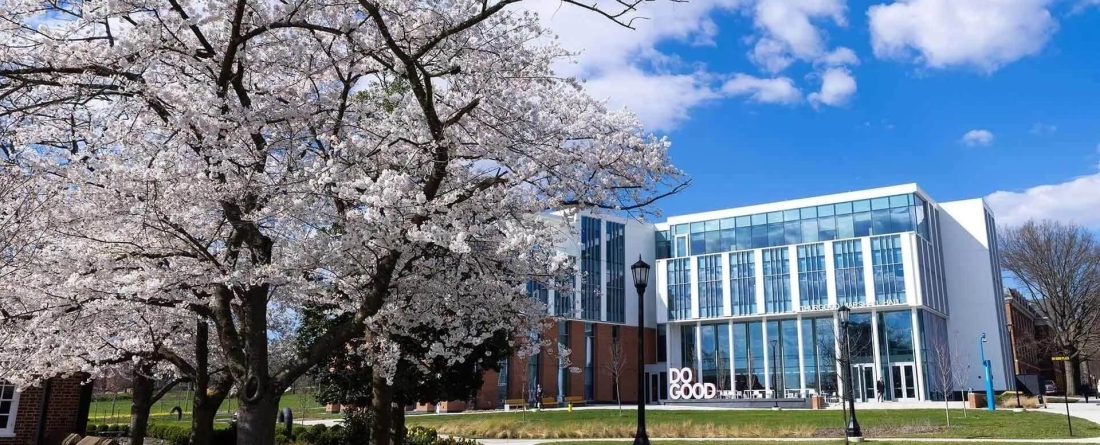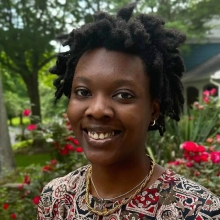
Photo by John T. Consoli
After Withdrawing From UMD Due to Concussions’ Effects, Undergrad Returns and Excels
Via Maryland Today / By Lauren Barnhardt Cech
Onyekachukwu Arah ’25 finished high school in the top 5% of her class and gave the speech at graduation. “A’s were what I knew,” she said.
A year later, still suffering the effects of a string of concussions, her University of Maryland GPA had sunk to 0.214. The debilitating headaches, sensitivity to light and sound, and trouble focusing prompted Arah to withdraw from the university so she could heal.
The former high school basketball player returned after a three-year hiatus and began pursuing a double major in sociology and public policy. Now she has a 3.852 GPA, ambitions to earn a doctorate in sociology to become a professor, and the funding to get started as one of 19 rising seniors in the nation to earn a Beinecke Scholarship.
It provides $35,000 to outstanding students planning to pursue graduate studies in arts, humanities and social sciences. Arah is the third student from UMD to receive the scholarship since 2013.
"Having a scholarship kind of gives me peace of mind about graduate school and undertaking a doctoral program,” she said. “I aspire to be an advocate and an academic. I want to produce work that has a tangible impact on communities.”
Arah suffered the first three of her five concussions within 18 months while playing basketball at Paint Branch High school in Montgomery County, Md., and the transition to college was difficult. She withdrew in November of her freshman year and re-enrolled the next semester, but her post-concussion symptoms persisted, and she stopped attending classes after spring break.
“I needed time to really give myself a chance to fully heal and also develop coping strategies and social support so that once I did return, I would be able to feel like I had a circle of people who could help keep me afloat, even if I did start to experience some of the same symptoms,” she said.
At home, Arah sought out a program she’d been involved with in high school called PeacePlayers, an international nonprofit that uses basketball as a tool to build leadership skills and community.
“For a while after I stopped playing basketball it was hard for me to even watch the sport, but after a few years I kind of came back to that love of the game and of sports in general,” she said. “I realized that I really wanted to make an impact in communities.”
But to do that, Arah said, she needed to finish her degree. And since she’d saved enough to recover from the financial hit of her freshman year, she made her case to come back to UMD.
Her first semester back, she earned a 4.0. Inspired by former first lady Michelle Obama’s autobiography “Becoming,” and with the help of several professors, Arah decided to double-major in sociology and public policy. She has worked as a teaching assistant and research assistant, focusing on social issues affecting marginalized populations and athletes’ health. She’s also interested in Black mental health, racial disparities in maternal health outcomes and concussions.
This summer, Arah is interviewing the partners-turned-caregivers of retired NFL players about managing the lasting effects of head trauma this summer as part of the McNair Scholars Summer Research Institute.
“Onyeka Arah’s experiences working with BIPOC youth communities, her exemplary academic performance and her strong research record in sociology reflect her drive to make a real-world difference,” said Leslie Brice Bustamante, assistant director of UMD’s National Scholarships Office.
Added sociology Professor Kris Marsh: “Onyeka is a one-of-a kind student that a professor might be lucky enough to meet once or twice in their academic lifetime. Her exceptional writing resembles the work of an advanced graduate student and in many ways mirrors that of my peers and fellow academics. It brings me great joy to know that Onyeka is considering a life as a professor.”

